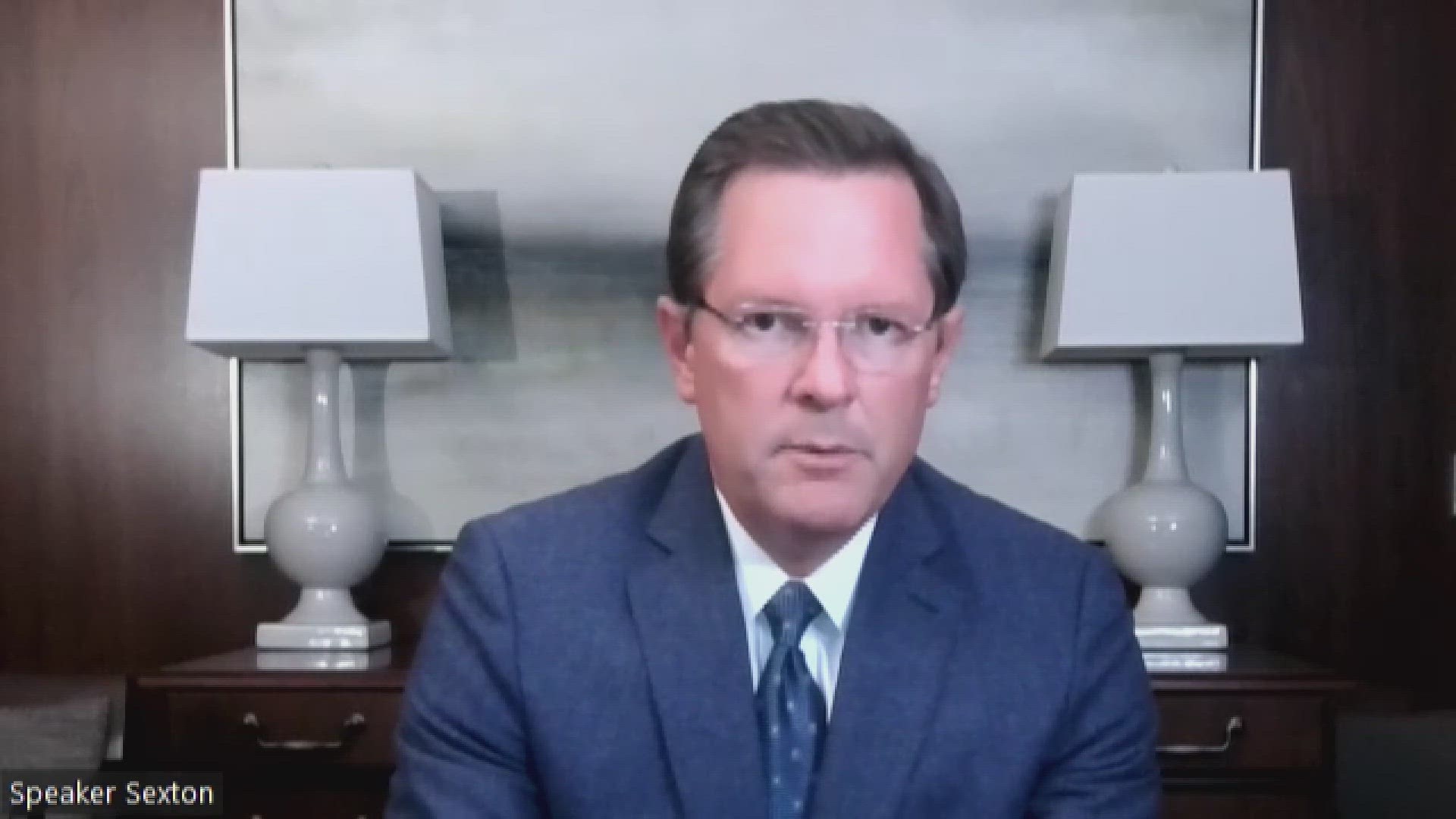NASHVILLE, Tenn. — On Tuesday, a group work session continued with state lawmakers including House Speaker Cameron Sexton (R-Crossville) to continue discussions about whether to reject $1.9 billion in federal education funding.
"The main thing is, is we need to know as a state, when we go into a contract with the federal government, whether you agree with it or not, we need to know the terms and conditions of that contract," Sexton said.
WBIR asked Sexton about the specific "strings attached" to federal education funding. His response is below.
"I think the most interesting part is, the U.S. Department of Education was invited to come down to testify and tell us what is and what isn't. And they refused. They don't want to tell us what the strings are."
WBIR then asked the U.S. Department of Education if they were invited to testify by state lawmakers.
“The U.S. Department of Education was not invited by the working group co-chairs to testify," A Department of Education spokesperson said. "However, the Department has offered to provide technical assistance to members of the legislature.”
On Tuesday, the Tennessee Department of Education presented on how federal education grants are specifically used. Some of the funds include Title I funding and support for about 1,200 public schools statewide. Those funds are primarily used to support low-income and disabled students. They also mention grants help fund afterschool lunch and special education programs.
WBIR asked the U.S. Department about what the "strings attached" were, where federal funding goes, and what happens if federal funding is pulled. A statement from a spokesperson is below.
“Our students need more – not less – to support their academic recovery and address the youth mental health crisis. This political posturing will impede the basic education of young people throughout the entire K-12 school system and limit opportunities – particularly for students most in need – to access tutoring and academic support, afterschool and summer programs, school counselors, mental health professionals, and other assistance. Any elected leader in any state threatening to reject federal public education funds should speak with their local educators and parents about the detrimental impact it would have on their community’s education system and their students’ futures.”
WBIR also reached back out to Sexton's office about the statement from the U.S. Department of Education, claiming they did not receive an invitation to testify.
Speaker Sexton was not available for a statement or comment, but the office referred reporters to a statement another lawmaker made last week. That statement is from Senator Jon Lundberg (R-Bristol).
“I will tell you the Federal Department of Education has informed us they are unable to attend our task force meeting. They can only offer quote technical assistance to the committee, and they stated that if members wish to submit questions, they will do their best to get them answered. If members want to submit questions, I would ask that you provide them to my office or Chairlady Moody’s office, and we will submit them. Any answers received will be in the taskforce report if we get them quickly enough, although I suspect those may not be next week.”
WBIR also asked Sexton's office specifically how this might affect students with special needs or students from low-income families. WBIR also asked if anything in the budget might suffer if almost $2 billion from the state government would need to be used to supplement federal funding.
Sexton's response is available below.
“The Federal Government is $33 trillion in debt; at some point, they cannot continue funding and functioning without significant cuts or extreme taxation. Should the State of Tennessee not be prepared when that day comes? Let’s be clear - this is Tennessee taxpayer money we send directly to DC - they take a cut to fund their bloated government and then dictate to the states what you must do to get any of your money back. Just because it has always been that way doesn’t mean it must continue or not be questioned.
The Sycamore Institute has said the $2 billion being reported is an overestimation, and it is closer to $1.1 billion. The proposal is simply to have state dollars replace federal dollars; thus, Title I, IDEA, School Lunch, and the other programs would all remain in place and serve our students. Simply taking federal money because it is merely money without understanding the terms, conditions, and exposure to progressive policies by federal bureaucrats is irresponsible. Just like when the state accepted Race to the Top federal money, and it brought us Common Core.”
Again, no decisions to cut federal funding have been made, and any official decisions would come up when the legislative session starts in January.

